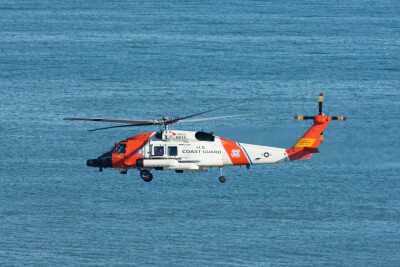The world is our oyster
McDonald’s revealed recently with great fanfare that their chicken nuggets are now made with — you guessed it! — real chicken. Am I supposed to be impressed? I guess so. Over the last few decades, we as a culture have steadily moved away from eating what Michael Pollan describes in “In Defense of Food” as things your great-grandparents could identify as food.
While it’s nice to see that we might be moving back to focusing on eating food made from recognizable ingredients, it strikes me as counterintuitive that the federal government (and anyone scrambling to make fast cash on the sky-is-falling notion that the world is running dangerously low on protein) is moving in the opposite direction.
Some recent political swings in fishery management suggest that Washington — and in some cases the states — may be entrenched in the habit of dismissing the value of well-managed commercial fisheries (which put protein on consumer tables) in favor of recreational fisheries. Capitol Hill seems to be stuck in a time warp in which U.S. fisheries are unmanaged and perched on the brink of collapse. Meanwhile, NOAA celebrates annually the overwhelming success of our federal fishery management policies. Do they talk to their colleagues? Maybe they just stick to the weather.
At the same time, the federal government is apparently nearly giddy over finfish aquaculture, going so far as to approve genetically modified salmon for human consumption via the Food and Drug Administration and promote open-ocean net pens.
We’ve come so far in recognizing the damage caused at every trophic level by factory farming and producing animal protein sources on an industrial scale — from honeybees to personal health to farmland and ocean health. And yet we are failing to recognize the intrinsic value in our wild-capture fisheries, even selling them off for the chance at farming fish on a grand scale. Fishing is not just the last industry of the American cowboy spirit. It’s the last vestige of our essential human connection to food as nature intended — wild and free and available to everyone.
I’m no luddite when it comes to human evolution, but I recognize the value in maintaining a connection to what made this planet our home in the first place. More is not always better. In fact, it’s quite probable that we have exactly what we need already. We just have to take care of it.
* * *
On a lighter note, I am very much looking forward to seeing this year’s Crew Shots. Please send photos taken in 2016 to [email protected], and be sure to include Crew Shots 16 in the subject line. We will also need to know names of those pictured (from left to right) the boat, home port, location (if not the home port), fishery and gear type. The more information you include and the larger your image, the better your chances are for getting into the magazine or on the cover!
The deadline for submissions is Oct. 31, 2016.
» Read more Editor's Logs here.
» Read more articles in our November issue.
» Fish eNews offers the latestindustry news.
» Like us on Facebook.
Copyright © 2016 National Fisherman. All rights reserved.







